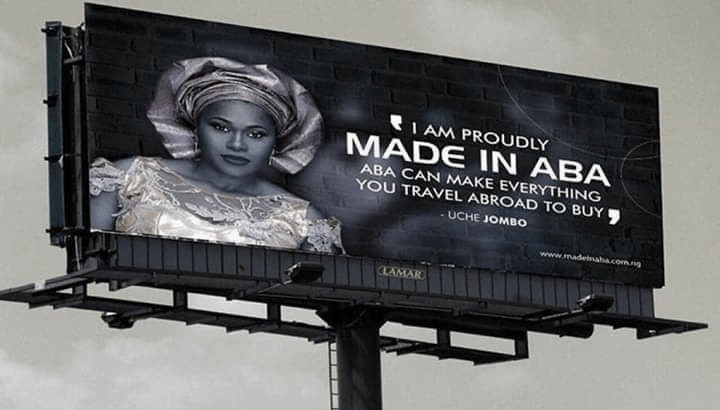“There is Money in the Entertainment Industry” by Aaron Livingstone.
My very good friend called me sometime in 2017, “Aaron, there’s a new system we can use to make money, YouTube.” She explained to me how Mark Angel and Emmanuella became celebrities and Millionaires all of a sudden through entertainment, uploading comedy skits to YouTube. It was mind-blowing. It was phenomenal. Well, the typical me would have jumped at it immediately, but I had just had a session with my financial mentor, where he had told me to only build a business on passion and meeting a need. Quite interesting points, he added that as important as making a profit is, I must make sure I focus more on adding value to society. I took these words to heart, so immediately my friend brought up the YouTube comedy business, as a means to make quick money, I called her bluff. It doesn’t blend with my core values. That said, it is no doubt that the Nigerian entertainment industry is raking in billions in profit annually. The industry has undoubtedly made a lot of people millionaires in a very short time. The entertainment industry comprising the music, movie, arts, and also comedy industry has been the major source of the Nation’s celebrities, as it is quite easy to build a strong fan base in Nigeria. But there’s a question that’s begging to be asked, and that’s “what inspires our Entertainers?” My analysis of the entertainment industry in recent years has shown that a good number of Nigerian youths seek to become financially independent, famous, and influential. They want to “blow” so to say. But really, there’s nothing wrong with seeking to make a profit out of a trade. It’s just fair that a labourer should receive wages for his labour. What poses a challenge is when you place money above the values you should promote and see profit as your major driving force, neglecting the fact that as an entertainer, you have the propensity to hold your audience spellbound, you have a hypnotizing effect over them that could influence their beliefs, their thought patterns, their view of life and even their sense of purpose and their motivations. Entertainers are the biggest influencers in today’s societies and maybe they’ve not noticed but the people believe in them much more than they believe in the government. At the end of the just concluded Big Brother Naija show, some said and I quote, “I commend the supporters of Laycon, popularly called Icons as they’ve shown an unrelenting commitment to their love and trust in him and I would recommend they with immediate effect, set up a political party.” That statement would seem like a joke gone too far, but looking at the underlying facts, one would say that entertainers can one day take over the government, but that’s not the focus today. Now, seeing how the masses love their celebrities, I begin to wonder, do these entertainers care so much about their fan base? I go back to my initial question, “What motivates, inspires, and drives our entertainers?” Materialism could be seen as a self-seeking act, where a person raises the need for profit over adding value and promoting positive change and morals. A quite interesting fact is that the Nigerian entertainment industry has become a hotspot of materialistic quests and self-seeking entertainers who only look out from themselves while they create their content. There was a time where entertainers like Onyeka Owenu, Fela Kuti, and the likes would stand to promote good governance and unity. There was a time when the entertainment industry was seen as a revolution and an avenue to stand against bad government policies and political misgivings. Well, in today’s Nigeria, the entertainment industry is still a revolution, but a revolution that promotes greed, materialism, the love for money, sexual vices, and negative morals and speaks nothing about matters that concern their audience. Our entertainers so much want to make us forget our sorrows but never want to use their platform as a means to reach out to the government. It’s disheartening, nevertheless, we are proud of Celebrities. They are doing the nation proud. Not less than 80% of Entertainers in Nigeria are below the age of 40. This strikes a note, letting us know that the Nigerian youths are in control of the entertainment industry. This also stresses out the fact that our youths have been overly drawn to materialism. One wouldn’t point an accusing finger at them, because the situations in the country make one want to live differently, but if that’s the case then we are not ready for a better Nigeria. So much can be done through the entertainment industry by the youths, with their energy but it would require a re-channelling of their drive, motivation, and purpose from Materialism to Value addition. The Nigerian people need at this point people who can speak on their behalf, not just people that would help them drown their worries. The Nigerian populace needs people who won’t just see them as a target market to monetize skills, but to them, as a people, yearning for a change and the Entertainers take up the banner of change and neglects the drive for profit. Materialism and materialistic drives will in no way make any positive impact and with such, our Entertainers would only keep on encouraging negative values and immoral vices in the youths. The Nigerian youths see the entertainers as Hero’s and they let themselves be willfully influenced by them. So, the entertainers must live up to this standard. Entertainers should not be driven by materialism. They have the key to promoting positive values in Nigerian youths. The Love of Money is the root of all evil! Aaron Livingstone is a final year Industrial Chemistry student of the Federal University of Technology, Minna. He has a great passion for gaining knowledge and loves to read. He wrote in via livingstoneaaron41@gmail.com




